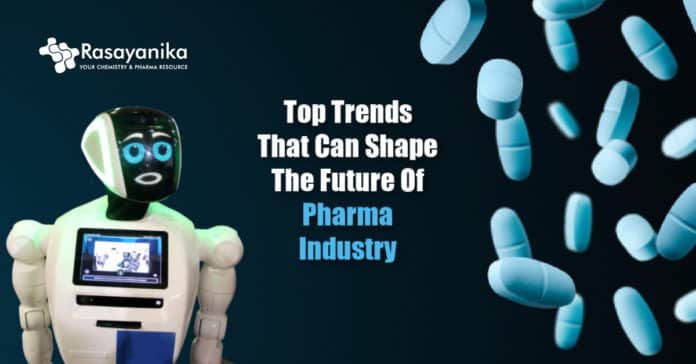Top Trends Pharma Industry Needs To Adapt In Future
The pharmaceutical industry includes the discovery, development, and manufacture of medications and drugs. Currently, its an industry of utmost importance. However, there might be a future without pharma companies when preventive health care and innovative startups start crushing the demand for drugs. If they are not ready to change their ways, they are going to vanish. The pharma companies are facing the greatest dangers of all time now.
One of the greatest challenges faced by the Pharma industry is its over-regulation designed to make sure products are safe. Therefore it’s slow in adopting innovation. And the pharma companies do not really share data with each other in the executive order of information sharing, and moreover, they are selling pills that are not enough anymore. Pharma companies need integrated services with the pills, or otherwise, they will vanish.
Here are the top technologies and trends that are shaping the future of the pharma industry.
- Empowered Patients

Empowered patients are conscious about their health and disease management, and they might want to actively take part in managing their condition. To run their own
clinical trials, some patients even acquired or launched biotech companies. One example is ‘Solid Biosciences’ which was launched by the father of a patient suffering from Duchenne Muscular Dystrophy. So imagine what the pharma industry can do with patients who can crowdsource the solutions for their health problems.2. Augmented and Virtual Reality

Currently, we read the descriptions of drugs and side-effects on paper. But, very soon with devices like Oculus Rift, Google’s digital contact lenses, we can get digital three-dimensional virtual information about those drugs. These technologies can give us another perspective through digital data. Patients will be able to see how the drug works in 3D rather than just reading about them. In laboratories, those who don’t have prior hands-on-experience will also be able to do the experiments as the gadget will guide them through. We will soon be able to see how these work in action and what changes these technologies can bring to the pharma industry.
3. Customized Personalized Medicine
Until now, we had been getting drugs that were manufactured for millions of people. These are called blockbuster drugs. But genetically, we are quite different, or our molecular makeup is different. So what if we get customized drugs? Customized or personalized medicine can get us treated for diseases according to our own particular sub-atomic cosmetics. We can get medicines customized for us rather than using blockbuster drugs designed for millions of people who are genetically and metabolically different. Advancement in personalized medicine will create a more unified approach towards the treatment of individuals and their genome. Personalized Medicine can aid in Better Diagnosis & earlier disease interpretation. More efficient drug development and therapies will also be possible via Customized Personalized Medicine.
4. 3D-printed drugs
What if a patient can go to a pharmacist and get the drug printed out on-demand without pharma companies? 3D printers are another trend that is shaping the pharma industry now. We can print out medical equipment, customized prosthetics, biomaterials, and now even drugs using 3D printers. The first 3d printed drug approved by the FDA was launched this summer in 2015 for epilepsy. Moreover, a Scottish group has been working on the methods to find a way to print out drugs on-demand. If successful, they would disrupt the whole pharma industry.
5. Body sensors

The type and amount of data obtained from patients over a couple of years determine the success of clinical trials and treatment. What if we can use digital tattoos and body sensors to get any kind of health parameters and vital information so that we could make the best decisions based on the data. There are body sensors available that can be implanted in the body to measure vital fundamental signs efficiently and easily.
6. Artificial Intelligence
We could bring big data into the medical practice to make good decisions by using supercomputers like IBM Watson. It means that, in the pharma industry, they will finally be able to carry out clinical trials in seconds instead of a decade without costing billions of dollars. Using supercomputers to analyze the virtual physiological models of people will help to accelerate the discovery of new drug molecules. And this could end the era of human experimentation. Imagine a scenario where a large number of medications can be tested in a few seconds using supercomputers. Its time pharma industry promotes such research for their own advantage.
So all these trends have the potential to disrupt the pharma industry. For example, the food and beverage company Nestle opened up a branch for 3d printing food. Although it’s not practical right now, soon, the company will have a whole branch with business models, experts, and actual products. They are thinking ahead, looking at the newest technologies.
Similarly, its time pharma companies adopt the right kind of approach and technologies so that they don’t miss the so-called digital train. Innovative startups and disruptive companies are changing the way the pharma industry is doing its job. So if the pharma companies don’t change their methods and their business models, they are going to vanish. So the pharma companies need to be more open to innovation, still keeping the products safe.

















































